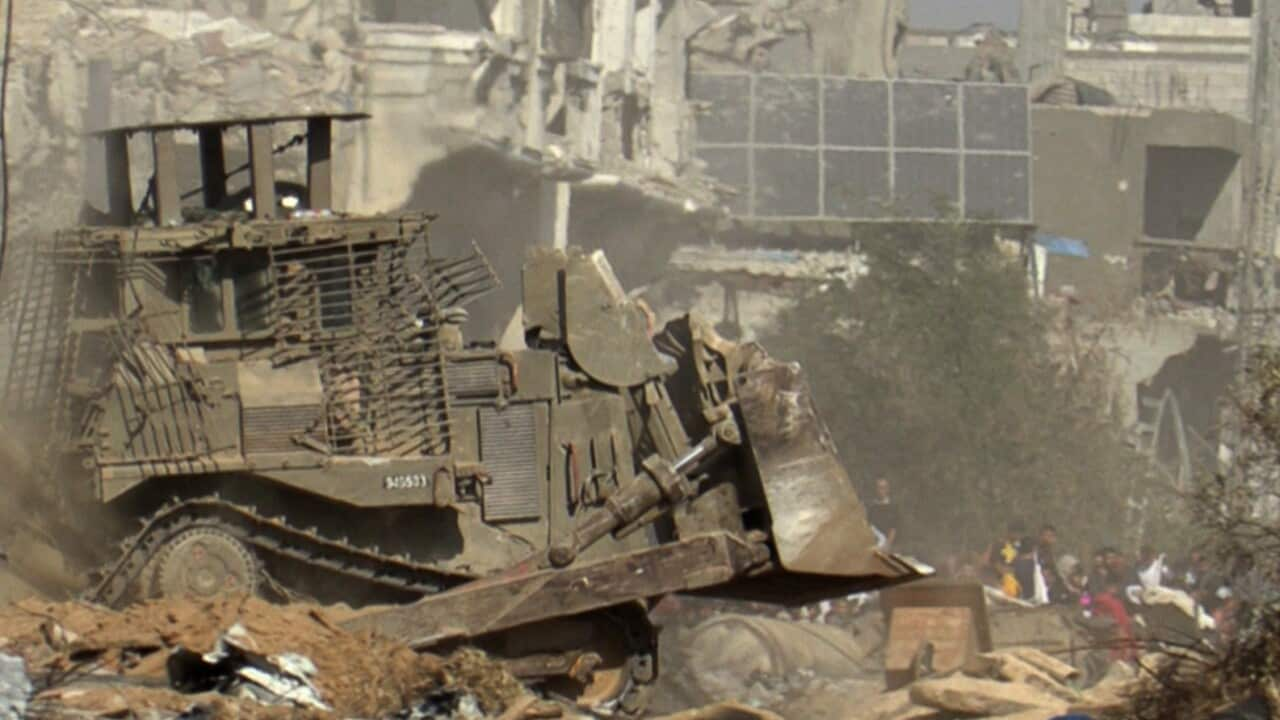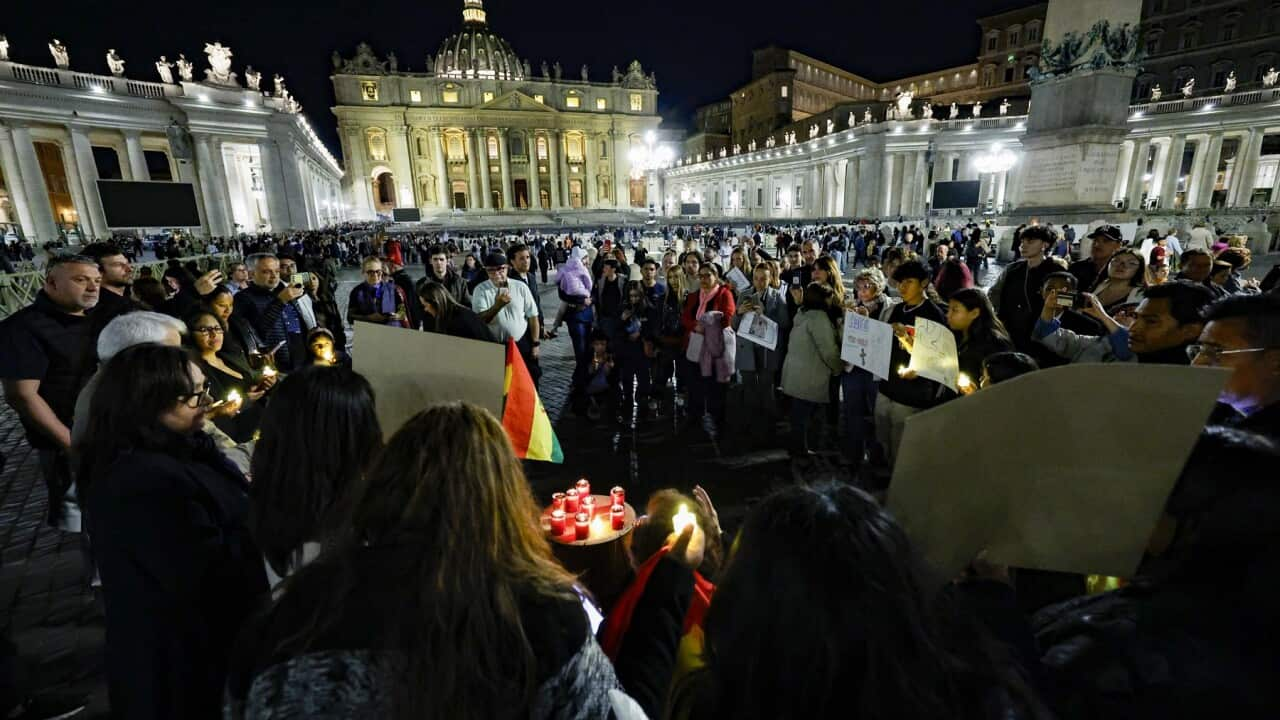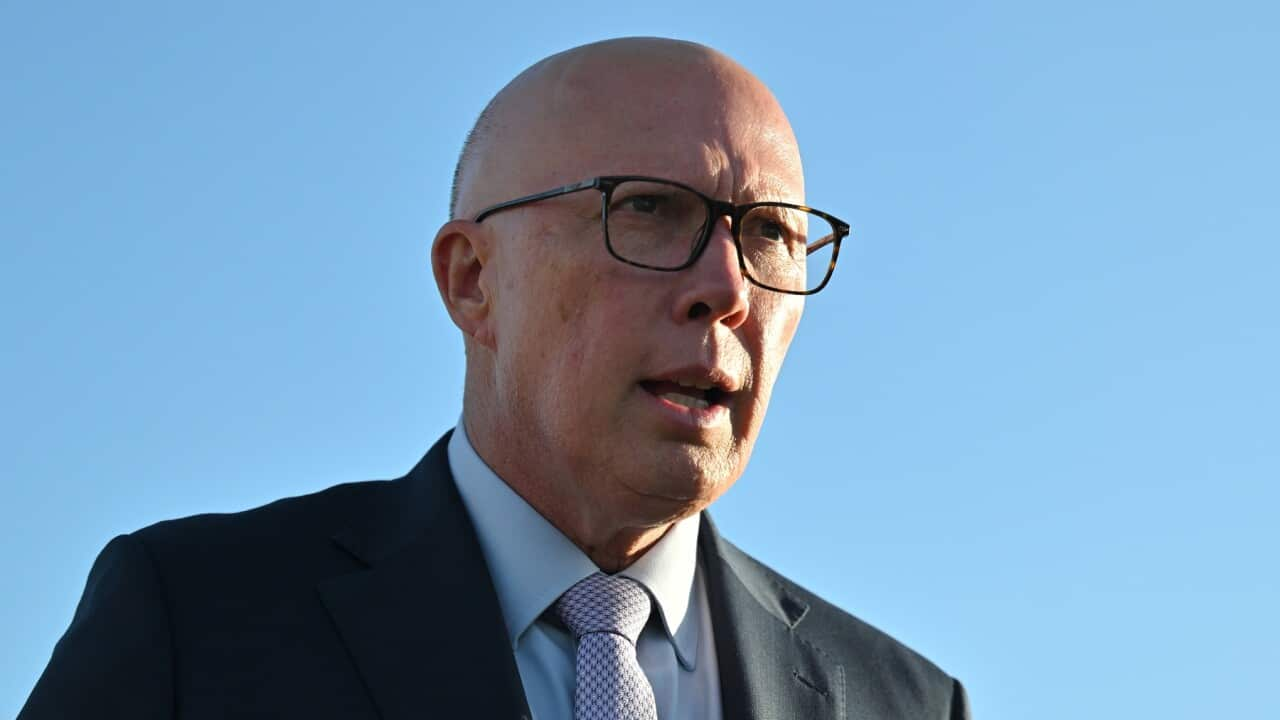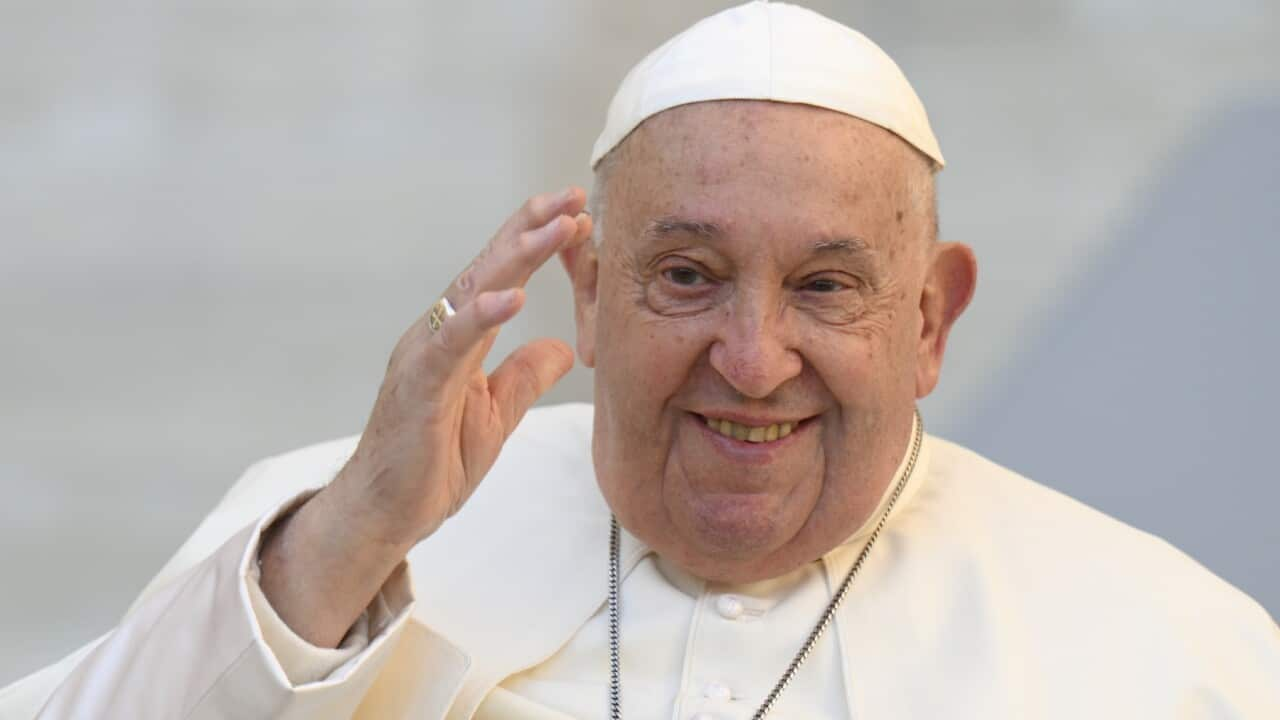TRANSCRIPT
The Ministry of Health in Gaza says at least twelve people have been killed after intense fighting around a hospital identified as the Indonesian Hospital in northern Gaza.
Like other health facilities in the area, the Indonesian Hospital has largely ceased operations but is still sheltering patients, staff and displaced residents.
The Israeli Defence Forces says the deaths are the result of a gunfight with fighters outside the facility.
Palestinian health authorities say Israeli tanks have now surrounded the hospital, and hundreds of people remain trapped inside.
It comes as the Israeli military says its offensive has pushed remaining Hamas militants into the eastern part of Gaza city.
Israeli military spokesperson Daniel Hagari says Hamas have been unprepared for Israeli attacks.
"We conducted an offensive operation in the heart of Gaza City - Shari, Shifa - in an encirclement and grasping method. That led to us reaching the heart of the city very quickly, much faster than Hamas anticipated. Hamas terrorists were surprised in the field and we dismantled their defensive lines. That left the east as the area where they congregated, because of our offensive move. Now we are combing the east with iron combs, and that is where we are meeting Zeitoun and Jabaliya and there, the terrorists that remain."
More than 12,700 Palestinians have been killed since the war began according to Palestinian health authorities, and about 4,000 people are reported missing.
Around 1,200 people have been killed in Israel, mostly during the October 7 cross-border attack when 240 people were also taken captive by militants.
The families of some of these hostages have met with Prime Minister Benjamin Netanyahu and other top Israeli officials amid ongoing concern that not enough has been done to secure their release.
A relative of one of the hostages, Udi Goren says the meeting made clear Israeli officials won't prioritise the release of captives over the defeat of Hamas.
"Now, when we've met with the entire cabinet, what we've heard is that taking down Hamas and bringing the hostages are as important, are equally important. As far as I am concerned, and I represent myself and my family, this is incredibly disappointing because I feel that at this point, when we know that taking down Hamas, we keep hearing from them, is going to take months or years."
Meanwhile, the United States National Security spokesman John Kirby says the United States is "closer than ever" to securing a deal over the release of the hostages.
He says the White House's negotiations are advancing, but nothing has been finalised.
"We're still working this hour by hour. I do not have an update for you on the hostage deal that we're trying to negotiate. But as you heard, the deputy national security adviser say yesterday, we believe we're closer than we've ever been. So we're hopeful. But but there's still work to be done and nothing is done until it's all done. So we're going to keep working on this."
As negotiations over the hostage release continue, trucks carrying containers and equipment for a Jordanian field hospital have arrived in Gaza through the Rafah border crossing with Egypt.
A reported 180 doctors, nurses and administrators have accompanied about 40 trucks across the border, with the aim of setting up the field hospital in Khan Younis within 48 hours.
The country will build the hospital in the south of the enclave to help to deal with the health crisis which has been made worse by the siege of Gaza's largest hospital, al-Shifa, reducing its ability to provide care to those fleeing the conflict.
A spokesman for the Rafah crossing, Hisham Adwan, says more health workers are expected soon.
"There will be an other 13 doctors coming in, Jordanians as well. Seventeen other people have entered from the UAE delegation who inspected the land on which the Emirati (field hospital) will be established. The delegation already left to the Egyptian side. It is expected that the Emirati hospital will be entering today or tomorrow."
It comes as United Nations General Assembly Member states have called for an immediate ceasefire and a substantial increase in aid to Gaza.
Israel has ordered the evacuation of the north of Gaza, but thousands of civilians remain.
Food fuel, medicines and water are rapidly running out and around two thirds of Gaza's population made homeless by the conflict.
The Netherlands' representative to the UN Bahia Tahzib-Lie says the situation is only getting worse, and the need for more aid is desperate.
"The humanitarian situation in Gaza is catastrophic, alarming really. Essential services have nearly collapsed with unimaginable consequences for more than 2 million civilians. To this day, humanitarian access continues to be unsafe, severely limited and undependable. The aid that enters Gaza is but a fraction of what is required. An immediate and massive scale up of aid is needed."













